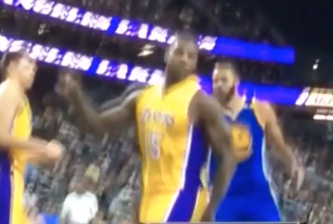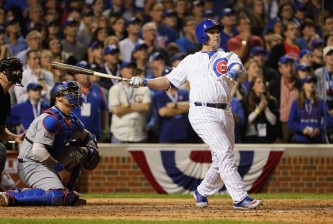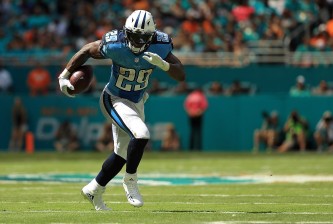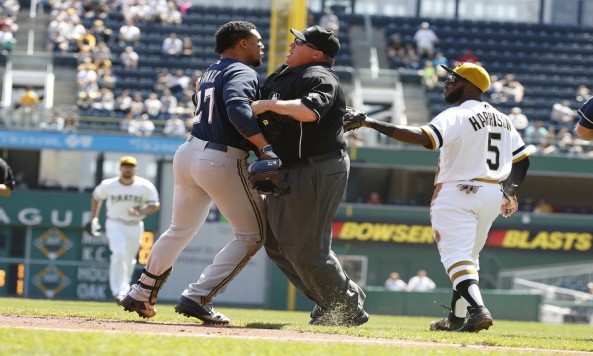With the first (full) month of the 2014 MLB season nearly in the books, officiating has been a hot topic thus far.
Rarely do major league umpires get praise for good calls or for the way they command respect and hold a game together. But we’ll break from tradition and commend those umps that fans sometimes hear about but almost never complain about.
That said, this list isn’t any fun unless we also include the worst ones. It’s fitting that in the first year of expanded replay, we take a closer examination at the noteworthy and notorious umpires today.
And we have indisputable visual evidence to back up our claims.
The Best
5) Tim McClelland
There is plenty of hate to be had here. His unbelievably deliberate ball and strike calls behind the plate can annoy those wanting a faster game (which is everyone).
He has also been at the center of some controversial calls over the course of his 31-year career (most notably, the Pine Tar Game with George Brett in 1983). But there is a reason why he has worked in four World Series and eight League Championship Series—other than his longevity. McClelland is widely respected throughout the majors, and his presence will be missed as he sits out at least through the 2014 season with a back injury.
4) Jim Reynolds
Having been in the business since 1999, Reynolds has avoided the lowlight of bad calls for roughly four years. His strike zone favors the outside corner a bit, but it’s not due to a lack of perspective.
As we’ve seen before, humility in this profession goes a long way towards garnering respect. “Every day I have a responsibility to get better even though I’ll never be perfect,” he said in a 2010 interview. “I will say this, there is nobody in the ballpark when I miss a call who feels worse than I do…But it’s not for lack of trying or hustle. I treat every game like the seventh game of the World Series.”
3) Jeff Nelson
Deservedly promoted to crew chief prior to this season, the 47-year-old Nelson has improved in reputation with steady judgment. When he does make a mistake, he owns up to it (much in the same manner as Joyce).
In an ESPN Insider piece, former manager Manny Acta ranked Nelson as the best umpire and had this to say about his no-nonsense, yet dedicated approach to the craft: “He averages 0.00 smiles per game, but no one cares more and works harder than this guy. Solid all around and very consistent.”
2) John Hirschbeck:
In his 30-plus years in blue, Hirschbeck’s claim to fame has been (and will always) be his encounter with Roberto Alomar in September 1996, which concluded with Alomar spitting in his face. But there is much more to the crew chief for the 2013 World Series.
John Hirschbeck gets the plate tonite. Very good ump with rep for having a larger strike zone. #WorldSeries — Jon Heyman (@JonHeymanCBS) October 23, 2013
In his book, Major League Umpires’ Performance, 2007-2010, author Andrew Goldblatt said Hirschbeck is “the most important umpire of his generation.” This is due not only to a strike zone that keeps the flow of the game up, but also because he was the first president of the World Umpires Association.
1) Jim Joyce:
It’s unfortunate and ironic that an umpire who doesn’t go out of the way to seek the spotlight and is incredibly consistent at making calls is most remembered for an obvious mistake in a huge spot.
By incorrectly ruling Jason Carroll safe with two outs in the ninth inning, he cost Tigers pitcher Armando Galarraga a perfect game in 2010. But unlike some umps that have trouble admitting their faults, Joyce immediately owned up to his error. His humble and remorseful approach in the wake of an embarrassing situation was truly commendable.
And despite this highly-publicized miscue, Joyce was still voted the best umpire by MLB players after the 2010 season. He has maintained this respect and admiration among the baseball establishment since then. Joyce proved his worth in the zany ending of Game 3 in last year’s World Series—a moment that can make a less seasoned umpire be too rattled to remember the rules.
Jim Joyce was voted, by the players, as the best umpire in the MLB. He made the right call tonight. Saying otherwise is simply incorrect — Killian Mitchell (@KillianMitchell) October 27, 2013
The Worst
5) Fieldin Culbreth and Marty Foster (tie)
The final spots on the boo-worthy list of umpires are reserved for two that found themselves making egregious mistakes last season.
Culbreth let matters get out of hand in an Angels-Astros match-up last May when, as crew chief, he allowed Houston manager Bo Porter to remove a left-hander from the game during his warm-up tosses. Porter replaced him with a right-hander after Los Angeles skipper Mike Scioscia inserted the lefty-swinging Scott Cousins—an act not allowed per the MLB rulebook.
Scioscia played the game under protest, and Culbreth showed a complete lack of accountability after that game. Soon after, he was fined and suspended two games for a “misapplication of Official Baseball Rule 3.05(b).”
While Culbreth didn’t give much thought to fully reading his employee handbook, Foster can be accused of being inconsistent. All you need to know about Foster’s inability to have a fair and balanced strike zone can be contained in this short video below—the final pitch of the Rays-Rangers contest on April 8. It was almost like he needed to make a dinner reservation or a flight out of Dallas.
4) Bob Davidson
In May 2012, Davidson was suspended one game for “repeated violations of the Office of the Commissioner’s standards for situation handling.” It’s the first time in recent memory that an umpire was reprimanded so severely for his performance on the field, and was probably applauded by players who voted him the fourth-worst umpire in a 2011 Sports Illustrated poll.
The tipping point for this rare action came when his quick temper led to a heated argument with former Phillies manager Charlie Manuel.
His penchant for calling balks gave him the nickname “Balkin’ Bob.” He hasn’t made many friends with pitchers around the league, or with the ornery fan base in Philadelphia. That was made especially true when he erred again in June 2013.
3) Joe West
The senior-most umpire in the game is also the dean of the attention-starved. “Cowboy Joe” will toss anyone who looks at him cross-eyed, and has also opined on the pace of Red Sox-Yankees games as being “pathetic and embarrassing.”
Despite having been a part of an umpiring crew in five World Series and eight League Championship Series, there is a mixed opinion of West among those in the bigs. A 2011 players poll had rated West the fifth best MLB umpire (five percent of the vote), but he was named the worst umpire by 41 percent.
2) C.B. Bucknor
This man is probably most relieved of the implementation of expanded instant replay. Still, someone generous should give him a give him a gift certificate to LensCrafters in order to fix his obvious lack of eyesight.
If one ever dares let him call a game from behind the plate, get ready for an ever-changing strike zone sure to confuse and infuriate batters, pitchers, managers and fans alike. S0, it’s no surprise that Bucknor has been voted the worst in baseball on multiple occasions.
Apparently, his employers haven’t read the press clippings or the constant criticism, as he somehow remains employed after 14 years on the job.
1) Angel Hernandez:
The most infuriating aspect of an official (in any sport) is when it appears they want more attention than the players. This foolish frame of mind is sculpted in the head of Hernandez. Tell me when you have heard a fan say they came to the ballpark to watch an umpire. But it doesn’t stop there, as he combines that ego with egregious errors.
Exhibit A: The thin-skinned Hernandez tossed former Chicago Bear defensive lineman Steve McMichael after the former Super Bowl champion criticized him on a recent call that went against the Cubs just prior to signing “Take Me Out to the Ballgame” at Wrigley Field.
Exhibit B: Last year in Cleveland, calling what was clearly a home run (especially after viewing instant replay) a double. Then, he threw out a deservedly-upset Bob Melvin. It was later ruled to be an “improper call.”
It’s no wonder why Hernandez is a regular on the list of the most disliked umpires in MLB. And it’s no different here. Now, if only the fans could eject him out of the game for good.























